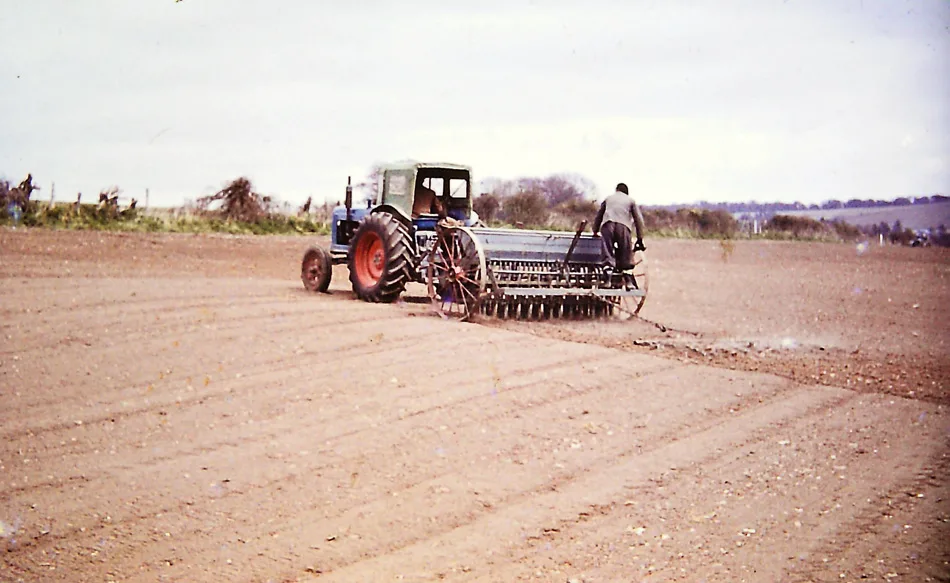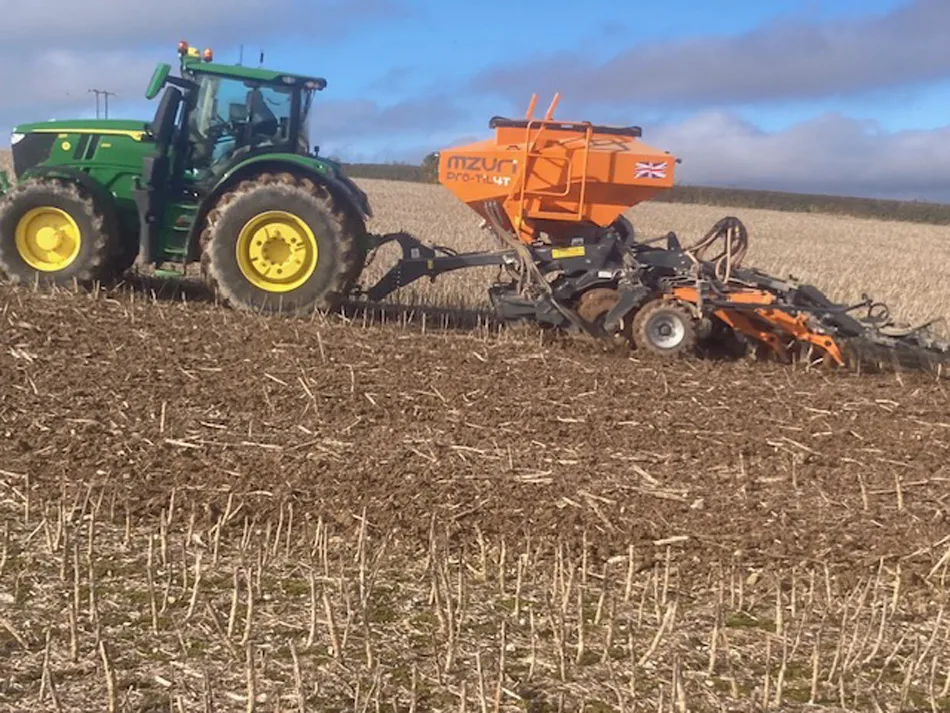Autumn’s been kind at Rawston Farm, says James Cossins, who’s balancing good crops, community harvests and climate conversations

All images: James Cossins
The autumn has been relatively kind to us at Rawston Farm, with autumn sowing of crops such as wheat, barley, oil seed rape and grass all now completed in record time.
Thanks to the mild weather and warm soils they have all germinated very quickly too, and are now a lush green.
We have had few slug issues so far this autumn, but aphids are now the main concern. These tiny insects can transmit barley yellow dwarf virus, which can cause significant crop losses if infected aphids pass the virus to young plants.
Later drilling can help reduce the risk, as it narrows the window in which crops are vulnerable – though in some cases, an insecticide may be necessary as a last resort. We’re keeping a close eye on our cereal crops and monitoring carefully for any signs of aphid activity.
Our milking cows are now housed at night and just go out for a few hours in the day, depending on the weather. Thankfully we have had a good autumn for grass growth, after the long drought of the spring and summer. That has allowed us to keep cattle out for longer than usual, letting them graze off the surplus grass. In turn, this is helping us preserve valuable forage stocks for the winter.

That time of year
It is harvest festival season once again, and it has been great to see good turnouts for both harvest suppers and church services.
I was asked at a recent village harvest supper what the church could do to support farmers. I replied that continuing the harvest thanksgiving services in villages, towns and cities was a great way of reminding everyone where their food comes from – and that, in spite of the dry summer, crops such as apples seem to be in abundance.
I was invited to the Blandford Young Farmers’ harvest supper, where the club took time to thank everyone who had supported them over the past year. It was a fantastic evening, with the young members working together to provide our supper. During the event, the group presented a cheque to this year’s chosen charity – Teddy Rocks – from their fundraising efforts.
Young Farmers Clubs are always on the lookout for new members. Anyone under 26 is welcome to join – you don’t need to be from a farming background, just keen to meet like-minded young people. There are six clubs across Dorset – you can find your nearest on dorsetyfc.org.uk.

Dorset COP
On 1st November I attended the Dorset COP25 conference at the Exchange in Sturminster Newton. COP – the Conference Of the Parties – is essentially focused on climate change and the many debates that surround it. More than 300 delegates attended, and it was encouraging to see so many like-minded people gathered to hear from a range of speakers covering different aspects and effects of climate change.
My own particular interest lay in the discussions around sustainable food production, and in the work happening here in Dorset to restore our harbours and rivers.
There was considerable debate about food. One of the key conclusions was the need for better education – we all need a clearer understanding of how to feed ourselves a healthy, nutritious diet, using locally-grown food where possible. Schools would be a good place to start, teaching children about where food comes from and how to eat well.
The expansion of allotments, giving more people the chance to grow their own food and encouraging communities to come together to support one another, was also discussed. Where food is short, help can be offered; where food is abundant, it can be shared. We were shown an excellent example of this in practice at the Vale Family Hub.
Rivers are an important part of the Dorset landscape, and there were encouraging updates on restoration projects already underway. These involve volunteers working alongside organisations and landowners to improve and protect our watercourses (see the DWT’s article this month)
We also heard about active steps being taken to improve the condition of our harbours. I’m sure there’ll be more on the Dorset COP elsewhere in this month’s BV, but these are just my own reflections on what was a really interesting day. Plenty of questions remain, but one thing is clear – it’s vital we keep the conversation going.
Back to reality this month – we are TB testing again. Please keep your fingers crossed!


